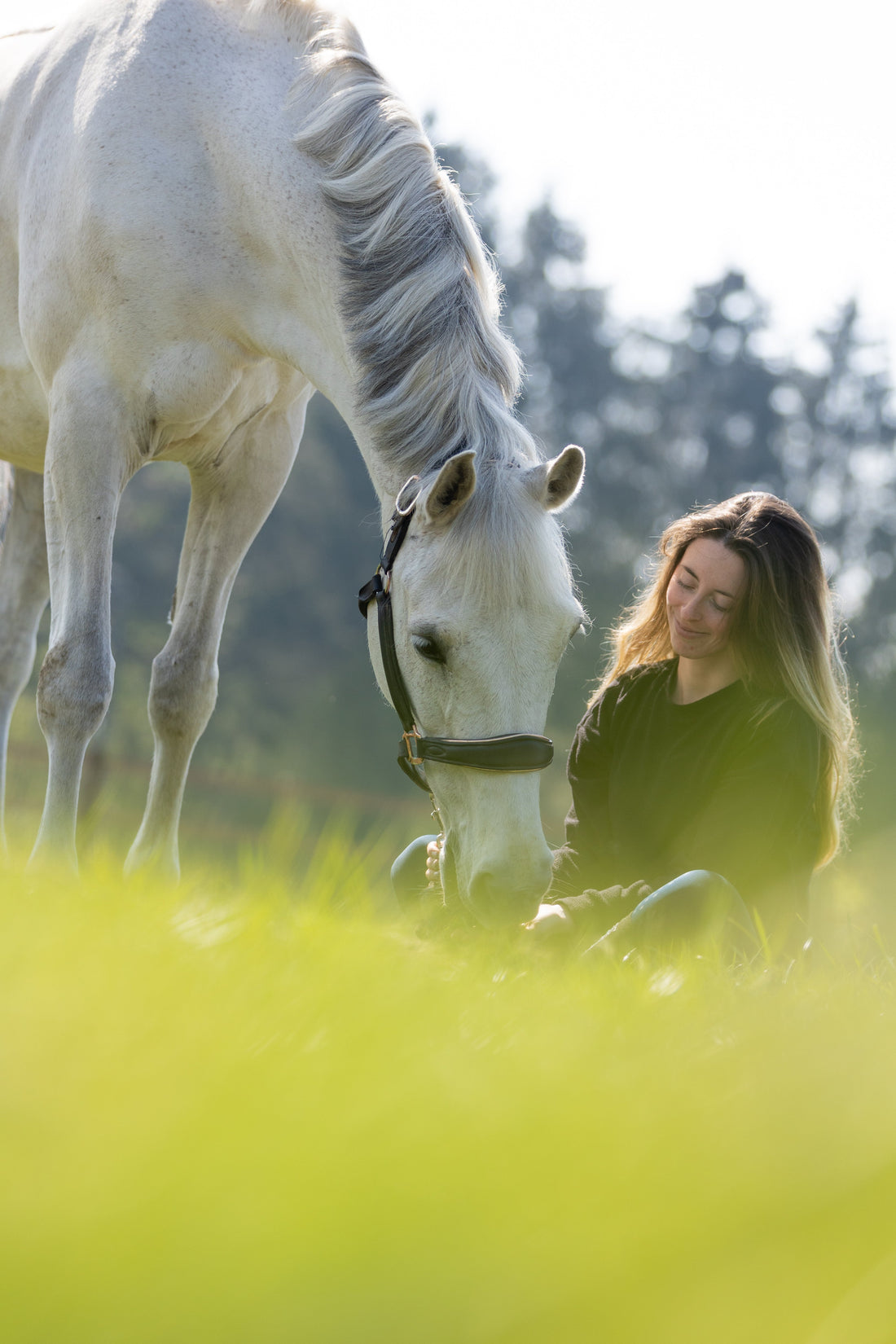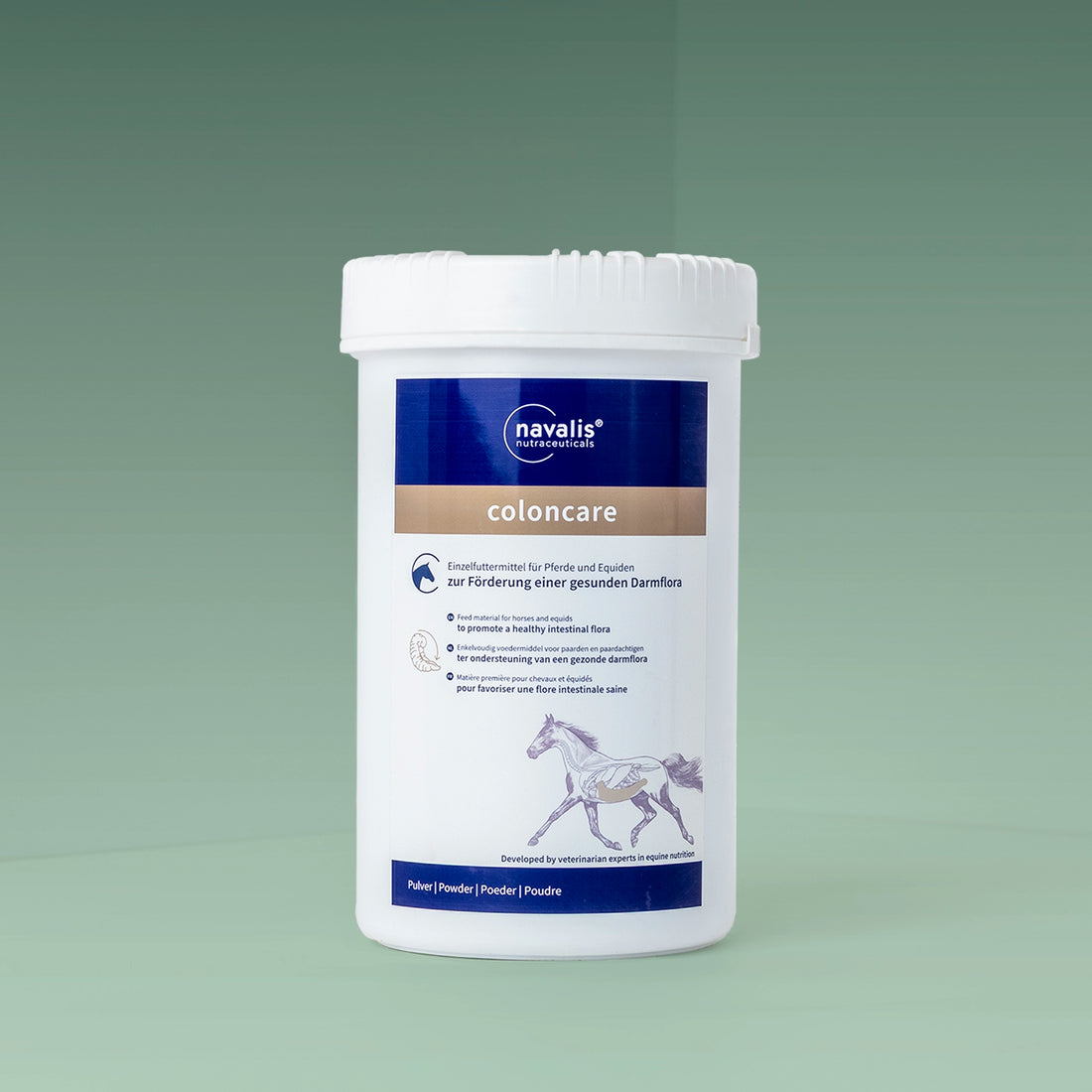Grazing in spring: start relaxed instead of risking tummy ache
3 min

Spring is here, the pastures are a lush green - high time to get the horses used to grass again! But be careful: switching from hay to fresh grass is a real challenge for a horse's sensitive gut. If you proceed too quickly, you risk colic, diarrhea or even laminitis. To ensure a smooth start to the grazing season, you need a smart grazing plan and a little patience.
Why the gut needs time to switch over
Throughout the winter, the horses have been fed almost exclusively hay - rich in crude fiber but low in sugar. Now fresh spring grass comes into play: lots of water, plenty of easily digestible carbohydrates and - depending on the weather - a high fructose content. This sugar in particular can quickly become a danger if the gut is not slowly prepared for it. Switching too quickly can upset the delicate balance in the digestive system and lead to serious metabolic problems.
The perfect grazing plan
- Day 1 to 3: A maximum of 15 minutes grazing time per day.
- Day 4 to 7: Increase to 20 to 30 minutes.
- Week 2: Gradually increase to up to two hours.
- Week 3: If the horse tolerates everything well, 3 to 4 hours.
- Week 4: Depending on individual tolerance, the grazing time can be extended further.
Supporting the gut & liver - here's how
There are some useful supplements to help the digestive tract cope with the change of feed:
- Gastro-care+ from Global Medics supports a healthy stomach function and has a protecting effect.
- Coloncare from Navalis supports digestion and promotes a healthy gut flora.
- Care Poudre from Reverdy is a combination of gastric acid regulators and L-glutamine.
Take a look at equicom.shop for more information.
The biggest grazing mistakes and how to avoid them
1. Straight onto the pasture without acclimatization
This can lead to serious digestive problems. So it's better to adapt slowly!
2. Sending horses out to pasture on an empty stomach
Feed them a portion of hay beforehand to curb their craving for grass.
3. Graze early in the morning or after frost
This is when the fructan content of the grass is particularly high. It is better to wait for stable temperatures.
4. Too little exercise
Those who only graze and stand risk becoming overweight and developing metabolic problems. So exercise regularly!
Graze wisely and avoid problems
Even if the anticipation is great - well thought-out grazing management protects horses from digestive problems and ensures a relaxed start to the grazing season. If you stick to the schedule, keep a close eye on your horse and support the gut with the right supplements, you can enjoy spring to the full. This way, the meadow remains a pleasure - and not a risk!
- Choosing a selection results in a full page refresh.
- Opens in a new window.


